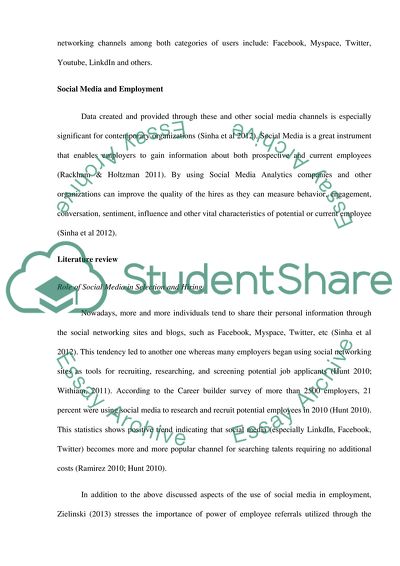Cite this document
(The Effects of Social Media on Employment Essay Example | Topics and Well Written Essays - 1500 words, n.d.)
The Effects of Social Media on Employment Essay Example | Topics and Well Written Essays - 1500 words. https://studentshare.org/media/1832958-researched-literature-review-the-effects-of-social-media-on-employment
The Effects of Social Media on Employment Essay Example | Topics and Well Written Essays - 1500 words. https://studentshare.org/media/1832958-researched-literature-review-the-effects-of-social-media-on-employment
(The Effects of Social Media on Employment Essay Example | Topics and Well Written Essays - 1500 Words)
The Effects of Social Media on Employment Essay Example | Topics and Well Written Essays - 1500 Words. https://studentshare.org/media/1832958-researched-literature-review-the-effects-of-social-media-on-employment.
The Effects of Social Media on Employment Essay Example | Topics and Well Written Essays - 1500 Words. https://studentshare.org/media/1832958-researched-literature-review-the-effects-of-social-media-on-employment.
“The Effects of Social Media on Employment Essay Example | Topics and Well Written Essays - 1500 Words”. https://studentshare.org/media/1832958-researched-literature-review-the-effects-of-social-media-on-employment.


